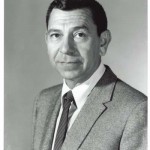 We believe that the prospect has to earn the right to get a proposal from the salesperson. The Optimal Salesperson® will only write a proposal to a prospect who has completely met all of the elements to be considered a qualified prospect. Most salespeople spend entirely too much time writing proposals. They do a cursory job of qualifying the prospect and then they either volunteer to write a proposal or are asked to write one which they eagerly agree to do. There are several possible factors which can cause this to happen.
We believe that the prospect has to earn the right to get a proposal from the salesperson. The Optimal Salesperson® will only write a proposal to a prospect who has completely met all of the elements to be considered a qualified prospect. Most salespeople spend entirely too much time writing proposals. They do a cursory job of qualifying the prospect and then they either volunteer to write a proposal or are asked to write one which they eagerly agree to do. There are several possible factors which can cause this to happen.
- The salesperson does not have or does not use and effective sales process
- The salesperson knows how to qualify a prospect but is unskilled at executing the process
- The salesperson has a belief that they must quote when asked
- The salesperson has a fear of rejection so they won’t ask the tough questions
- The salesperson believes that they can’t win if they don’t quote
- The salesperson thinks that writing proposals with low probability is a good way to avoid prospecting which they hate worse than writing proposals
There are many more possible reasons and some salespeople suffer from more than one.










